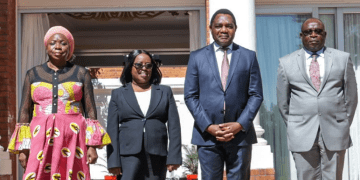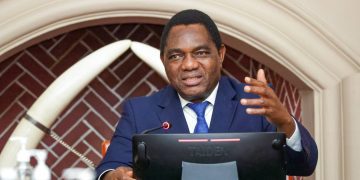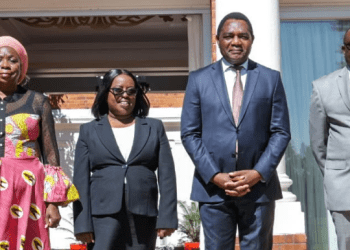Melo News | Tuesday, 6th February 2024 | Cape Town, South Africa
The annual mining indaba, a gathering of African leaders, mining experts, and global investors, is currently taking place in South Africa. With Africa holding approximately 30% of the world’s mineral reserves, according to the United Nations, there is immense untapped potential for economic growth and development.
South Africa’s President Cyril Ramaphosa emphasized this during the opening ceremony, stating that Africa has the capacity to become the center of the global energy transition, with mining playing a crucial role.
The discussions at the conference will revolve around the competition for Africa’s critical minerals, such as lithium, nickel, cobalt, manganese, and graphite, which are vital for the production of renewable energy sources like solar panels and wind turbines.
Despite the promising prospects, South Africa faces a significant challenge in terms of its energy sector. As the largest greenhouse gas emitter in Africa, the country heavily relies on coal-fired power plants, which account for 80% of its electricity generation.
This reliance on coal has contributed to the energy crisis in South Africa, making it difficult to transition away from these polluting power sources.
The conference will likely address the need for alternative energy solutions and explore strategies to reduce greenhouse gas emissions while ensuring a stable energy supply for the country.
President Ramaphosa emphasized that South Africa is committed to achieving a just energy transition that is both affordable and sustainable, while also ensuring energy security and creating new opportunities for those affected. This approach recognizes the need to balance economic growth with environmental concerns and social equity.
In addition, many African countries have been exporting their mineral resources as raw ores, which has resulted in missed opportunities to maximize the value of these resources. This practice has also contributed to exploitative labor practices within the mining industry across the continent. Furthermore, the lack of infrastructure has posed challenges in efficiently and cost-effectively transporting these minerals to markets.
According to the Natural Resource Governance Institute, the mining industry has only contributed 8% of total government revenues in the 15 most mining-dependent African economies. As a result, African governments are expected to demand more bargaining power during conferences and negotiations to ensure that they receive greater value for their resources. This shift in approach aims to address the imbalances and promote more equitable and sustainable development in the region.







































